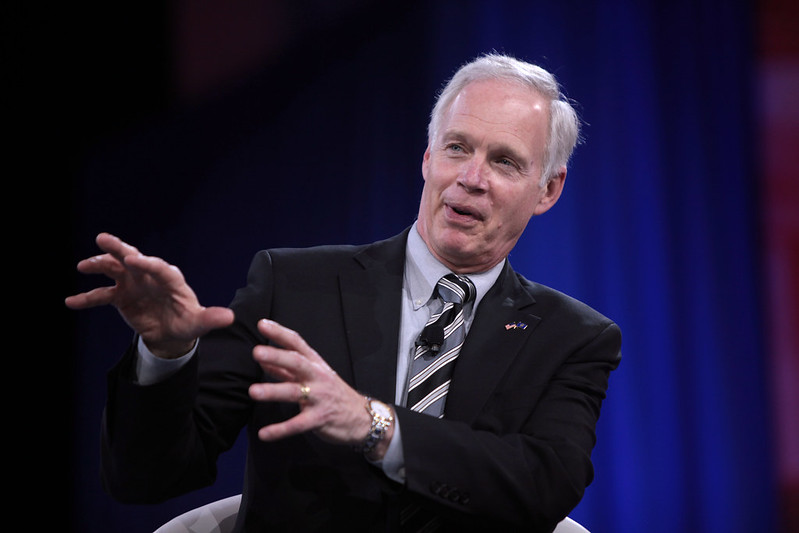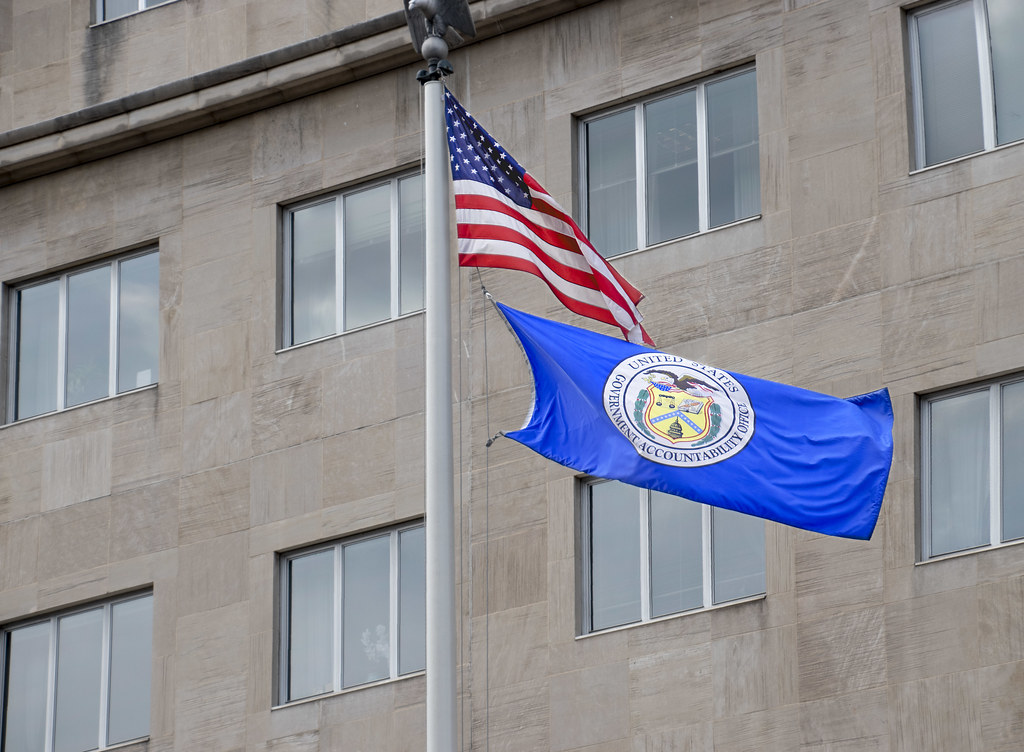What to Make of the Johnson-Grassley Report on Biden and Burisma
The report doesn't break any new ground and highlights the decline of the Senate Homeland Security and Governmental Affairs Committee.

Seven months into a crippling pandemic and with wildfires ablaze across the West Coast, the majority of the Senate Homeland Security and Governmental Affairs Commitee (HSGAC) has its attention focused squarely on the most pressing issues: five-year-old financial transactions by Joe Biden’s son and stray WhatsApp messages from Democratic lobbyists.
On Sept. 23, Sens. Ron Johnson and Chuck Grassley, the chairmen of the HSGAC and the Senate Finance Committee, respectively, released a majority staff report entitled “Hunter Biden, Burisma, and Corruption: The Impact on U.S. Government Policy and Related Concerns.”
The 87-page document draws from months of document subpoenas, 50 hours of witness interviews—and disclosures from a Kremlin-aligned Ukrainian politician. The same day, Johnson and Grassley’s Democratic counterparts—Sens. Gary Peters and Ron Wyden—released a rebuttal of sorts, “Election Interference: Majority Investigation Amplifies Russian Attack on 2020 Election.”
The end result is dueling reports that each accuse the other side of propagating Russian disinformation—although only one side has any ground to stand on. What gives?
The reports retread familiar ground for those who followed the 2019 impeachment inquiry. And it’s hard to read these reports and not come to the same conclusion as those proceedings indicated: Hunter Biden’s role on the board of Ukrainian energy company Burisma had no impact on the Obama administration’s Ukraine policy decisions.
But regardless of the substance of the reports, the episode paints a bleak picture of the demise of a key vehicle for congressional oversight. The years spent under Johnson’s leadership chasing unfounded conspiracies have sucked away the HSGAC’s credibility and atrophied the committee’s ability to conduct credible oversight.
Johnson’s report was no surprise: He’s been talking about the investigation for months. On various occasions, he has said the quiet part out loud and openly talked about his desired outcome for the investigation—to influence the 2020 presidential election. The most recent example was on Sept. 15, when Johnson explained in a radio interview that “I would think [the investigation] would certainly help Donald Trump win reelection and certainly be pretty good, I would say, evidence about not voting for Vice President Biden.” In case anyone missed his point, he later said, “What our investigations are uncovering, I think, will reveal this is not somebody we should be electing president of the United States.”
Putting aside Johnson’s motives, what does this report tell us?
On one level, not much. The headline chapter—Hunter Biden and Burisma—repackages largely known facts related to how U.S. government employees dealt with Hunter Biden’s position on the board of the Ukrainian company but offers no evidence that his role had any impact on U.S. foreign policy or the anti-corruption advocacy of Vice President Biden. As Andrew Desiderio and Kyle Cheyney of Politico wrote, the report “is largely a compilation of previously public information—some of it rehashed anew by witnesses who already testified during the House’s impeachment inquiry last year.” It spills a lot of ink, for example, to end up at the same place that multiple witnesses testified publicly to nine months ago during the impeachment inquiry: U.S. officials viewed former Burisma head Mykola Zlochevsky as a corrupt bad actor, and officials within the State Department had expressed concerns about Hunter Biden’s role at the company. But Johnson and Grassley dug up no evidence of malfeasance on the elder Biden’s part.
The rest of the report reads like a compilation of loosely connected short stories, none of which really makes all that much sense. One section describes various financial transactions by members of the Biden family but provides no evidence linking those transactions to corruption or otherwise providing evidence-based context for what they mean. Another is composed largely of spreadsheets cataloging Hunter Biden’s use of Secret Service protection. A later bit fixates on a one-off New Hampshire town hall given by John Kerry in 2019. And the report spends many pages incoherently defending against criticisms in the minority staff report.
On a textual level, therefore, the majority report is a bit of a head-scratcher.
But perhaps the point of the report is not to present a coherent narrative. Think back to the behavior that got the president impeached in the first place. Trump was impeached for holding back U.S. military aid for Ukraine in exchange for public announcements by the Ukrainian government of investigations into Hunter Biden and Burisma—“I would like you to do us a favor, though.” Trump came close to succeeding—Ukrainian President Volodymyr Zelensky almost appeared on CNN to make the big reveal—but the Ukrainians never made such an announcement. So it makes sense that Johnson and Grassley, both ardent supporters of President Trump, would pick up that ball and run with it.
The report appears intended to give the president what he couldn’t squeeze out of Zelensky. It asserts that the investigation will remain open, saying “there remains much work to be done.” The chairmen’s hope, it seems, is that the existence of an open Senate investigation into the younger Biden will be enough to achieve the sought-after damage to candidate Biden.
The report serves another function too. Its scattershot nature seems designed to offer just enough contextless facts, with the requisite window dressing, to generate buzz in the right-wing media ecosystem. Take, for example, the 18-page section about “Hunter Biden’s and his family’s financial transactions with Ukrainian, Russian, Kazakh, and Chinese nationals.” Johnson and Grassley list hundreds of transactions but never really bother to give much context to them and don’t appear to have investigated the transactions. Why would the committee, which is supposedly conducting an investigation, not do much in the way of looking into these transactions? Dropping in such financial information without context offers fodder for conspiracies, giving room to make a wider range of salacious allegations—particularly as Trump allies are fishing for fuel for unfounded conspiracies about Biden and China. Leaving things vague does more damage than if the committee majority had done the work to try to uncover evidence about what the transactions mean.
So far, though, it seems like the report has succeeded in capturing the attention of the Trump media world. The night after the report’s release, Johnson earned a prime-time invitation to talk with Fox News’s Sean Hannity, who opened the interview by saying, “Senator, I don’t get shocked very often….” And Trump himself glommed onto the report hours after it went public:
Wow, big news. Pick it up Lamestream Media, and pick it up BIG! https://t.co/5wYjyYsRfO
— Donald J. Trump (@realDonaldTrump) September 23, 2020
Since then, he has retweeted a New York Post storyabout the report and continued to push claims made in the report:
Russian Billionaire wired Hunter Biden 3 1/2 Million Dollars. This on top of all of the other money he received while Joe was V.P. Crooked as can be, but Fake Mainstream Media wants it to just go away!
— Donald J. Trump (@realDonaldTrump) September 24, 2020
Back in November 2019, Ryan Broderick of BuzzFeed Newswrotethat the House Intelligence Committee’s impeachment inquiry hearings were basically two entirely different events happening at once: one Democratic hearing focused on the details of the Ukraine affair, and a Republican hearing unbothered with the truth and “seek[ing] to create not just a counternarrative but a completely separate reality” that aimed largely to create “Fox News segments” and other material for online right-wing mouthpieces. An eerily similar dynamic reemerges here; the chairmen’s report is targeted at an entirely separate information ecosystem than Peters and Wyden’s reply.
The Peters-Wyden report decries the majority’s report as “based on conspiracy theories with roots in Russian disinformation efforts” and notes that the chairmen released it with “the explicit intention of tarnishing Vice President Biden’s reputation and his candidacy for President of the United States.” In its 56 pages, the minority’s report is part analysis of the available materials and part meta-text—a report about a report.
How do the ranking minority members make the argument that the majority is laundering disinformation through a congressional report? Media scholar Whitney Phillips has conceptualizeddisinformation as “pollution,” and the minority report attacks Johnson and Grassley’s report largely by showing how bad sourcing polluted it.
The ranking minority members argue that “Chairmen Johnson and Grassley’s allegations against former Vice President Biden rely primarily on sources promoting Russian interests.” One of these sources is Andriy Derkach—a man recently flagged by multiple federalagenciesas a Russian agent. The minority notes that Derkach “has favorably identified Chairmen Johnson and Grassley as part of a group of those uncovering an international conspiracy of corruption spearheaded by Vice President Biden and George Soros” and that the Russian “has further claimed to have provided information to the Chairmen’s Committees.” (Johnson and Grassley deny getting any information straight from Derkach.)
The minority report also notes that Ukrainian political consultant Andrii Telizhenko—whom the majority cites 42 times in its report—has “extensive ties to Mr. Derkach,” “traffics in the same debunked conspiracy theories as Andrii Derkach” and “has helped produce Russian disinformation for an American audience.” The minority report stresses that Johnson and Grassley also relied on defective information from domestic sources, namely the widely debunkedarticles from John Solomon in The Hill that undergirded many of the initial Burisma-related conspiracy theories.
And the minority’s conclusions about the available evidence are straightforward. Minority staff reviewed the testimony and documents and assessed that “Vice President Biden did not alter U.S. policies toward Ukraine in any way to benefit Burisma or his son.” In the view of Peters and Wyden, “the evidence unanimously shows that the normal interagency policy process was driven solely by the national interest.” The minority cites a number of government officials to support that conclusion. The former ambassador to Ukraine, Geoffrey Pyatt, for example, told the committee that the younger Biden’s Burisma position “had zero impact on my work” and that “there was no time at which Hunter Biden’s employment in any way compromised my ability to do my job effectively.” More than anything else, Peters and Wyden make a process argument: The public can have confidence in the propriety of the Obama administration’s Ukraine policy because, in Pyatt’s words, it “was formulated by the interagency process in all of its glory,” not the personal whims of the vice president.
The minority report may well preempt some of the damage of Johnson and Grassley’s fishing expedition (though that remains an open question). But on a deeper level, the majority report is a reminder of the deep cynicism that animates certain quarters of Congress. Lawmakers have demonstrated a willingness to use taxpayer resources not in the pursuit of legitimate oversight to identify threats or wrongdoing and fix governance challenges but, rather, to damage political opponents. And Johnson’s openness about those intentions shows that he need not fear criticism from the Republican base or Republican brass for his actions.
Fortunately, there seems to be at least something of a split within the Republican Party on whether such efforts should be pursued so brazenly. Although most Republicans on the committees went along with Johnson and Grassley’s efforts, Sen. Mitt Romney was less agreeable. On Sept. 16, Johnson pulled a vote on a subpoena related to this probe, and Romney criticizedthe investigation, saying: “It’s not the legitimate role of government, for Congress, or for taxpayer expense to be used in an effort to damage political opponents.”
It also seems that acting chairman of the Senate Intelligence Committee, Marco Rubio, has not been overly eager to assist with Johnson’s efforts. Rubio, together with ranking minority member Mark Warner, rejecteda request earlier in the month from Johnson and Grassley to obtain access to the Intelligence Committee’s transcripts related to the FBI investigation into Russian interference in the 2016 election. The contrast between the rollout of Johnson’s report and the Intelligence Committee’s release of its own report last month on Russian interference could not have been starker. The Intelligence Committee’s report was received as a serious, solid body of bipartisan work, even if some Republicans tried to spin its contentspublicly in order to avoid President Trump’s wrath. Johnson and Grassley’s report, by contrast, comes off as incoherent, useless and a waste of government resources—and it has been received as such. Nicholas Fandos of the New York Times, for example, notedthat the majority report “contained no evidence that the elder Mr. Biden improperly manipulated American policy toward Ukraine or committed any other misdeed” and lambasted the document as “little more than a rehashing of unproven allegations that echoed a Russian disinformation campaign.”
Based on this performance, it seems that the HSGAC will not be taken seriously anytime soon as a legitimate tool for effective government oversight. In some ways this demise is fitting—the committee has as part of its history Sen. Joseph McCarthy’s chairmanship of the Permanent Subcommittee on Investigations that led to the Army-McCarthy hearings. But this episode also highlights the decline of the committee that, in 1978, was reorganized as the Committee on Governmental Affairsand issued such monumental bipartisan legislation as the Watergate Reorganization and Reform Act and the Ethics in Government Act. Further, after the Sept. 11 attacks, the committee broadened its title to include homeland security and was responsible for the Homeland Security Act, implementation of the 9/11 Commission recommendations, the Hurricane Katrina investigations, and the Intelligence Reform and Terrorism Prevention Act (which revamped the intelligence community and created the Office of the Director of National Intelligence in 2004). Now, it’s the committee that, as the minority notes, “spent more than twice as much time on the record in [the Biden] investigation than it has devoted to all of its COVID hearings, combined.”
In theory, a Biden presidency or Democratic control of the Senate could present new opportunities to reinvigorate the HSGAC as a credible committee. Only time—and new leadership—will determine whether the committee has been poisoned beyond repair as a tool of Congress to serve as a legitimate check on the presidency.




-final.png?sfvrsn=b70826ae_3)

